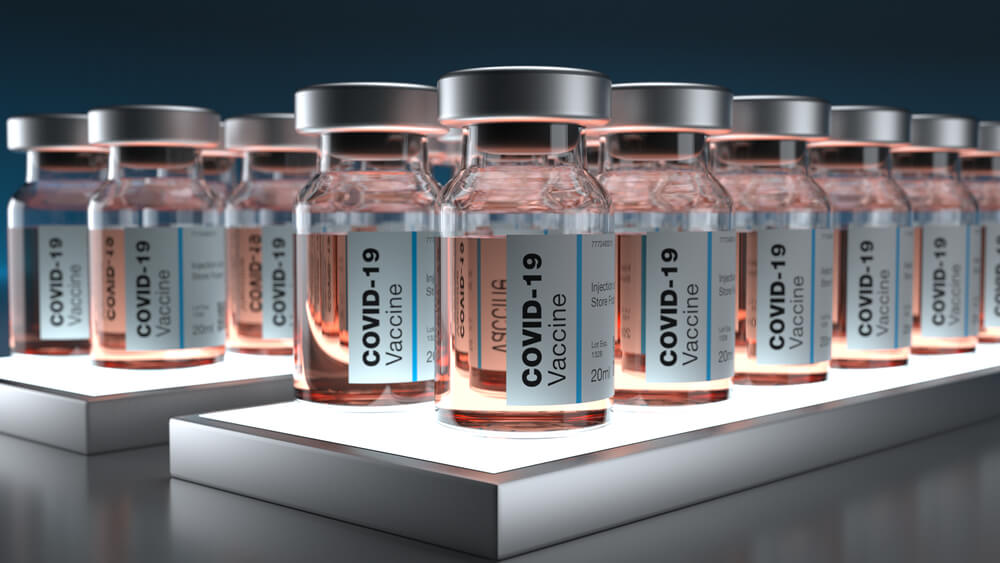



Get new exclusive access to healthcare business reports & breaking news




Recently, Sens. Dick Durbin and Tammy Duckworth (both D-Illinois) announced that the state was receiving $843,870,238 in federal funding. The funding, which was given by the CDC, will be used for the unending Covid-19 testing and vaccination distribution that’s happening all through the state.
This funding will go a long way in making sure that the state succeeds in its efforts to quell the pandemic. The Illinois Department of Public Health (IDPH) will be awarded $574 million that will be used for expanded COVID-19 testing. The department will also be allocated $90 million for the distribution of the vaccine.
The Chicago Department of Public Health, on the other hand, will receive $155 million that will be used for testing while $24 million has been reserved for vaccine distribution. This new injection of funds will help to greatly accelerate the state’s vaccination efforts, which have fallen behind the projected timeline.
The inoculation process is still in the first Phase-Phase 1A-which started in December and is expected to run through to February. This initial phase will focus on vaccinating health care workers and long term care facility residents as well as adults over 65 years of age. Essential frontline workers, consisting of first responders, as well as people with high-risk medical conditions aged 16-64 could be next in line during the second stages of inoculation.
The local funding crisis has been worrying for quite some time now. Officials have been concerned that they may be forced to shut down several testing centers due to the lack of funding. The task of vaccine delivery is huge and unprecedented, but it must be done properly and more importantly, it needs to be done fast.
The funding crisis that’s taking place not just in Illinois but across the country has rendered hospitals unable to hire vaccine staff. The number of vaccination centers available is also too low for the large population that needs to be vaccinated. Plus, there is a lot of public awareness that needs to be raised, which all requires boatloads of money to pull off.
The federal government has so far spent more billions to speed up vaccine development. However, not as much foresight was given to the distribution process. As things stand, it is the responsibility of the state and local governments to make sure that actual immunizations are done effectively.
Hospitals and pharmacies such as Walgreens and CVS have been tasked with dispersing the first wave of vaccination to healthcare staff and the long-term care residents. However, the local health systems are the ones that will make sure that the bigger waves of people are vaccinated. These local health systems will need a steady injection of funds as it will be critical for making sure the underprivileged such as the uninsured, undocumented, homeless, and others are also taken proper care of.
The vaccination efforts will only continue to become more complex as the process expands beyond seniors and hospital workers. Having a secure stream of funding in place will not only make sure that the process takes place quickly, but it’s the only way to squash the pandemic for good. The Hospital staff all over this country is already stretched thin as it is. So struggling to maintain the vaccination centers is not something else they need on their plates.
The vaccine doses from Pfizer and Moderna have been a godsend during this trying period. However, the rollout has been underwhelming, to say the least. In December, the US had the ambitious goal of vaccinating at least 20 million people by January 2021.
However, according to the CDC, only 5.3 million first doses had been dispersed come January. This slow pace means that it will take a lot longer to squash the pandemic, meaning that the economic, human, and emotional toll that it has had on people will likely continue for some time. As you can tell, both state and local medical suppliers need support from the federal government badly.
Organizations responsible for distributing the vaccine namely pharmacies, clinics, and hospitals need more resources to pull off the great work ahead. Some states have even started asking retired medical professionals to come out of retirement to help with the vaccination process. More of these retirees might feel inclined to heed the call if the federal government works on suspending medical license requirements as well as covering liability insurance, which all need money- lots of it.
Beyond using the funds to hire more staff, the vaccines that are presently available need to be stored properly. Having more staff members on board will also mean more protective gear will have to be purchased. At some point, the vaccine rollout will also expand beyond specialized facilities like nursing homes and hospitals.
Eventually, sites such as public schools and universities will also need to set up vaccination sites, which will all require extensive logistical support with everything from IT to physical infrastructure, storage, and transportation.
Although many people have been waiting for this vaccine for what appears to be forever. However, several high priority individuals, including the frontline and hospital workers themselves, have refused to be vaccinated. If this issue persists, more of the population might reject the vaccine, which will put the populace in quite the conundrum.
Some of the relief funds that have been issued have been allocated to vaccine education and awareness. But more needs to be done to fight the misinformation and the numerous conspiracy theories that are floating about.
Having a unified and simple message about the importance of taking the covid-19 vaccine seriously will help to move things along while building public trust. Awareness also needs to be spread about the costs. A lot of people already assume that they will have to pay for the vaccine, given the astounding charges for testing, even though that’s not the case.